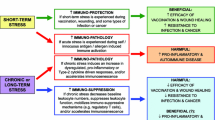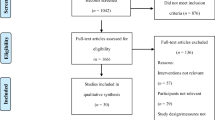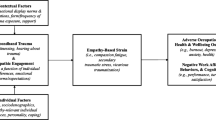Abstract
While the adverse impact of stress on health states has been established, effective stress reduction programs are largely underused in clinical settings. In an area with little published information, this study identifies themes that describe the process of applying mindfulness methods to cope with psychosocial stressors in participants of the Mindfulness-Based Stress Reduction (MBSR) program. The study design is a qualitative investigation with a phenomenological approach using participant feedback from 11 MBSR 8-week programs. Participants were 74 adults from the greater Pittsburgh area. Content analysis was used to inductively generate thematic categories. Four themes were identified that described the process and results of learning mindfulness to adapt to psychosocial stressors. We categorized participants’ feedback into interrelated themes of awareness (subdivided into self-discovery—“step back from my thoughts in order to view them more clearly”, and being in the present), coping—“pause, take a breath”, serenity—“increased feeling of calm, centeredness”, and change in perspective—“different understanding interpersonally and intrapersonally.” In addition, a brief section describes specific health benefits identified by participants. Participants found the mindfulness-based approach effective for stress reduction. The learning process allowed them to routinely apply mindfulness strategies that provided multiple benefits.
Similar content being viewed by others
References
Brown, G. W., & Harris, T. O. (1978). Social Origins of Depression. London: Free Press.
Brown, G. W., & Harris, T. O. (1989). Depression. In G. W. Brown & T. O. Harris (Eds.), Life Events and Illness (pp. 49–93). New York: Guilford.
Cohen, S., Janicki-Deverts, D., & Miller, G. E. (2007). Psychological stress and disease. Journal of the American Medical Association, 298, 1685–1687.
Cohen-Katz, J., Wiley, S., Capuano, T., Baker, D. M., Deitrick, L., & Shapiro, S. (2005). The effects of mindfulness-based stress reduction on nurse stress and burnout: A qualitative and quantitative study, Part III. Holisict Nursing Pratice, 19, 78–86.
Kabat-Zinn, J. (1990). Full Catastrophe Living: Using the Wisdom of Your Body and Mind to Face Stress, Pain, and Illness. New York: Delacorte.
Kabat-Zinn, J. (2003). Mindfulness-based interventions in context: Past, present, and future. Clinical Psychology: Science and Practice, 10, 144–156.
Karasek, R., Baker, D., Marxer, F., Ahlbom, A., & Theorell, T. (1981). Job decision latitude, job demands, and cardiovascular disease: A prospective study of Swedish men. American Journal of Public Health, 71, 694–705.
Ma, S. H., & Teasdale, J. D. (2004). Mindfulness-based cognitive therapy for depression: Replication and exploration of differential relapse prevention effects. Journal of Consulting and Clinical Psychology, 72, 31–40.
Mackenzie, M. J., Carlson, L. E., Munoz, M., & Speca, M. (2007). A qualitative study of self-perceived effects of mindfulness-based stress reduction (MBSR) in a psychosocial oncology setting. Stress and Health: Journal of the International Society for the Investigation of Stress, 23, 59–69.
Majumdar, M., Grossman, P., Dietz-Waschkowski, B., Kersig, S., & Walach, H. (2002). Does mindfulness meditation contribute to health? Outcome evaluation of a German sample. Journal of Alternative and Complementary Medicine, 8, 719–730.
Mason, O., & Hargreaves, I. (2001). A qualitative study of mindfulness-based cognitive therapy for depression. The British Journal of Medical Psychology, 74, 197–212.
Mazure, C. M. (1998). Life stressors as risk factors in depression. Journal of Clinical Psychology, 5, 291–313.
Morone, N. E., Greco, C. M., & Weiner, D. K. (2008). Mindfulness meditation for the treatment of chronic low back pain in older adults: A randomized controlled pilot study. Pain, 134, 310–319.
Morone, N. E., Lynch, C. S., Greco, C. M., Tindle, H. A., & Weiner, D. K. (2008). “I felt like a new person.” The effects of mindfulness meditation on older adults with chronic pain: Qualitative narrative analysis of diary entries. The Journal of Pain, 9, 841–848.
Paykel, E. S., & Cooper, Z. (1992). Life events and social stress. In E. S. Paykel (Ed.), Handbook of Affective Disorders (pp. 149–170). New York: Guilford.
Rozanski, A., Bairey, C. N., Krantz, D. S., Friedman, J., Resser, K. J., Morell, M., et al. (1988). Mental stress and the induction of silent myocardial ischemia in patients with coronary artery disease. The New England Journal of Medicine, 318, 1005–1012.
Schnall, P. L., Schwartz, J. E., Landsbergis, P. A., Warren, K., & Pickering, T. G. (1998). A longitudinal study of job strain and ambulatory blood pressure: Results from a three-year follow-up. Psychosomatic Medicine, 60, 697–706.
Sullivan, M. J., Wood, L., Terry, J., Brantley, J., Charles, A., McGee, V., et al. (2009). The support, education, and research in chronic heart failure study (SEARCH): A mindfulness-based psychoeducational intervention improves depression and clinical symptoms in patients with chronic heart failure. American Heart Journal, 157, 84–90.
Tacon, A. M., McComb, J., Caldera, Y., & Randolph, P. (2003). Mindfulness meditation, anxiety reduction, and heart disease: A pilot study. Family & Community Health, 26, 25–33.
Theorell, T., Tsutsumi, A., Hallquist, J., Reuterwall, C., Hogstedt, C., Fredlund, P., et al. (1998). Decision latitude, job strain, and myocardial infarction: A study of working men in Stockholm. The SHEEP study group. Stockholm heart epidemiology program. American Journal of Public Health, 88, 382–388.
University of Massachusetts Medical School. (2011). Center for mindfulness in medicine, health care, and society: Locate a program in your Area. Retrieved August 25, 2011, from http://www.umassmed.edu/cfm/mbsr/.
York, M. (2007). A qualitative study into the experience of individuals involved in a mindfulness group within an acute inpatient mental health unit. Journal of Psychiatric and Mental Health Nursing, 14, 603–608.
Acknowledgments
During the time of this work Dr. Morone was funded by KL2RR024154 from the National Center for Research Resources (NCRR), a component of the NIH, and NIH Roadmap for Medical Research. Its contents are solely the responsibility of the authors and do not necessarily represent the official view of NCRR or NIH. Dr. Greco was funded by K23 AR51314 and R01 AR57338 from the National Institute of Arthritis, Musculoskeletal, and Skin Diseases of the NIH.
Author information
Authors and Affiliations
Corresponding author
Rights and permissions
About this article
Cite this article
Morone, N.E., Lynch, C.P., Losasso, V.J. et al. Mindfulness to Reduce Psychosocial Stress. Mindfulness 3, 22–29 (2012). https://doi.org/10.1007/s12671-011-0076-z
Published:
Issue Date:
DOI: https://doi.org/10.1007/s12671-011-0076-z




